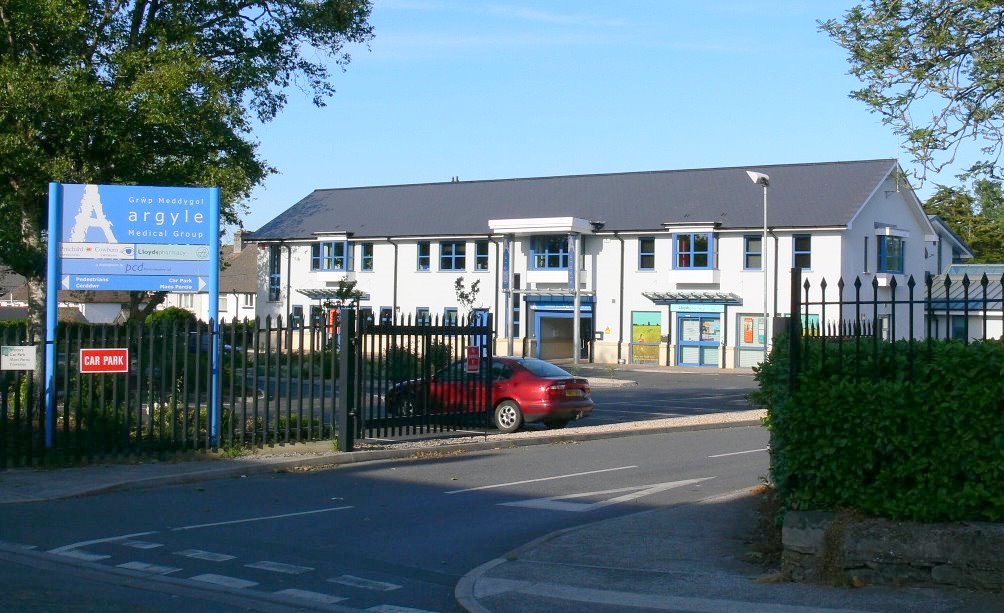Politics
Strange bedfellows


Stephen Crabb: Cross-party consensus favouring amendment he voted
against
THE LAST week has seen causes close to the hearts of many people receive support from somewhat unlikely quarters.
Last Tuesday, (Conservative) MPs voted against a proposed amendment to the finance bill, which would have forced George Osborne to outline a strategy for negotiating with the EU to remove the 5% VAT from tampons.
In the end, only three Conservative MPs voted in favour of the amendment, but prior to the vote, rumours of strong cross-party support for the amendment were rife, and commentators believed that Eurosceptic Tories would vote against the party line and follow their own agenda, as UKIP’s solitary MP did.
It will be interesting to see how many times Douglas Carswell votes in favour of a motion put forward by a Labour MP who has described herself as a ‘feminist and Trade Unionist’ in the future.
The three Conservatives who defied the Whip – Philip Davies, Philip Hollobone and David Nuttall, are all confirmed opponents of Britain remaining in the EU. Their vote in this matter, like that of Carswell, would appear to be an attempt to put Mr Osborne in a position where he was unable to secure EU approval, which would serve to highlight perceived problems with Britain’s EU membership ahead of a referendum.
The reasons given by Conservative MPs for voting against the amendment made for amusing reading. Realising, perhaps, that around half of their constituents were female, they queued up to tell local papers that they were in favour of reducing VAT for tampons – even though they voted against an amendment which was specifically about doing just that.
A Herald journalist contacted Stephen Crabb to ask his reasons for voting against the amendment The Secretary of State for Wales said that there was ‘cross party consensus’ that the UK should be able to abolish VAT on sanitary products.
“Ministers are about to commence discussions with the European Commission and other EU Member States.
“Given that the Minister has already promised to report back to the House of Commons on these negotiations, the amendment was unnecessary and so I voted against.”
The prospect of a Labour amendment succeeding presumably did not cross Mr Crabb’s mind when he cast his vote. The same could not be said for Gower’s Byron Davies, who was happy to say: “People also need to realise that it’s not that I voted against the abolition of the tax. I’m all for abolishing the tax or at least making it lower.
“But, I am a member of the Conservative Party; hence I am unable to vote in favour of a motion proposed by Labour.”
Mr Davies also said: “There is a lot of miscommunication around this issue at the moment.
“The decision to lower the VAT on sanitary items is not within the power of the UK government. This power lies with the European Union, who introduced the tax because they are not considered essential items.”
Whether or not this is the result of miscommunication, the amendment quite clearly stated that:
“Within three months of the passing of this Act, the Chancellor of the Exchequer shall lay before both Houses of Parliament a statement on his strategy to negotiate with the EU institution an exemption from VAT for women’s sanitary protection products.”
As such, arguing that it is not within the power of a UK government seems to be a flawed premise. However, it is one shared by Conservative MP for Monmouth David Davies, who also voted against the amendment.
“The problem is we’ve got the ludicrous EU regulations. They’ve got to change,” he told a local newspaper.
“People blame the government for things like this, but we don’t have any control over it.
“It’s something we need to bear in mind when there’s a referendum on our EU membership.”
It is perhaps surprising that David Davies voted against this amendment, given that he is willing to support other groups with, shall we say, differing political beliefs against the common enemy that is the EU.
The People’s NHS Wales have been vocally campaigning for the NHS to be made exempt from the Transatlantic Trade and Investment Partnership (TTIP). Readers in Pembrokeshire will be aware of their numerous attempts to meet with Stephen Crabb to discuss the issue with him, including attending two (cancelled) constituency surgeries.
The People’s NHS is fiercely critical of NHS privatisation, and the current Conservative government. The Welsh group has been attempting to raise the profile of TTIP, and the possible effects that privatisation in England could have on the Barnett differentials for Wales, as well as the risk that any privatisation would be irreversible.
This would, on the face of it, appear to be a fairly socialist agenda, in that it encourages government spending in the public sector. However, Mr Davies has lent the group his support, and has written what the People’s NHS Wales describe as a ‘strongly worded letter’ to the Minister for Trade and Investment calling for the Government to ensure that the NHS is protected.
In his letter to Francis Maude, Mr Davies said: “I therefore hope the UK government will call on the EU to change the wording of the TTIP proposal in a way that would rule out the privatisation of the NHS. If the EU ignores our wishes as is sadly possible, then I will advise all those who have lobbied me to take account of this when they vote on Britain’s membership of the EU in the forthcoming referendum.”
The wording of this missive carefully avoids making any reference to the role of the Conservative Party in this matter, or that one of the main concerns of the People’s NHS is that the Conservative Government will use TTIP as a means to a programme of privatisation which will be irreversible as a consequence of multinational companies being given the power to sue governments which make decisions that cost them money.
It appears that, to the hardened Eurosceptic, any cause that furthers the ‘Brexit’ agenda is to be championed regardless.
Business
Community council objections to Tenby Lidl store scheme

PLANS for a new store on the edge of Tenby by retail giant Lidl, which has seen objections from the local community council, are likely to be heard next year.
In an application recently lodged with Pembrokeshire County Council back in October, Lidl GB Ltd, through agent CarneySweeney, seeks permission for a new 1,969sqm store on land at Park House Court, Narberth Road, New Hedges/Tenby, to the north of the Park Court Nursing Home.
The proposals for the latest specification Lidl store, which includes 103 parking spaces, would create 40 jobs, the applicants say.
The application follows draft proposals submitted in 2024 and public consultations on the scheme, with a leaflet drop delivered to 8,605 local properties; an information website, with online feedback form; and a public exhibition, held last December at the De Valence Pavillion in Tenby, with a follow-up community event held at New Hedges Village Hall, close to the site, publicised through an additional postcard issued to 2,060 properties.

Some 1,365 responses have been received, with 89 per cent of respondents expressing support for the proposals, the applicants say.
A supporting statement says: “Lidl is now exceptionally well established in the UK with the Company operating c.980 stores from sites and premises both within and outside town centres. Its market share continues to increase substantially, and the company is expanding its store network considerably. The UK operational model is based firmly on the success of Lidl’s operations abroad with more than 10,800 stores trading across Europe.
It adds: “The granting of planning permission for the erection of a new Lidl food store would increase the retail offer and boost the local economy. The new Lidl food store would create up to 40 employment opportunities for people of all ages and backgrounds, providing opportunities for training and career development. This in turn will create an upward spiral of economic benefits.”
Local community council St Mary Out Liberty Community Council has formally objected to the scheme, saying that, while it supports the scheme for a Lidl store in principle, recognising “the economic benefits a new retail store could bring,” it says the proposed location “is unsuitable, conflicts with planning policy, and cannot be supported in its current form”.
Its objections add: “The A478 is heavily congested in peak tourist months. A supermarket would worsen congestion, increase turning movements, and heighten risks to pedestrians, cyclists, and emergency access.”
It also raises concerns on the potential impact through “noise, lighting, traffic disturbance, and loss of quiet amenity” on a neighbouring residential care home.
An initial assessment by Pembrokeshire County Council, highlighted concerns about the visual impact, with the authority’s landscape officer commenting that the store would introduce “an intense urban function into an otherwise rural context”.
The report added: “It is not considered to be compatible with the character of the site and the area within which it is located; and furthermore, will lead to a harmful visual impact on the setting of the National Park.”
The application will be considered by county planners at a later date.
Local Government
£4m Plaid Cymru deal boost to Pembrokeshire council coffers

PEMBROKESHIRE’S financial situation for next year is some £4m better off after a higher settlement from the Welsh Government, but the council still faces difficult decisions, councillors heard.
While council tax makes up a proportion of the council’s annual revenue, a crucial area of funding is the Aggregate External Finance (AEF) rate from Welsh Government.
Pembrokeshire was to receive a 2.3 per cent increase on its settlement, a total of £244,318,000, amounting to an extra £5,493,000, placing it at joint 13th of the 22 local authorities in Wales.
Now, following a Welsh Government and Plaid Cymru agreement, local authorities including Pembrokeshire have received a better financial settlement.
Speaking at the December meeting of Pembrokeshire County Council, while presenting a report on the outline draft medium term financial plan (MTFP) 2026-27 to 2028-29, Cabinet member for finance Cllr Alistair Cameron said the recent rise in the financial settlement from the Welsh Government had decreased the expected funding gap for the next financial year for the county from £17.7m to £13.6m, but stressed: “There are still increased pressures we are going to have to face.”
His report for members outlined some of the pressures faced by the council in setting its budget for the next financial year.
“Based on the revised projected funding gap of £13.6m, it is evident that major budget savings as well as a significant Council Tax increase will be required in order to deliver a balanced budget for 2026-27. The lower the Band D Council Tax increase, the higher the budget savings requirement will be, with the consequential adverse impact on the provision of Council services and on the medium-term financial sustainability of the council.”
His report also noted the decision in October by members to cut the council tax premium on second homes from 150 to 125 per cent, which on its own has increased the funding gap for 2026-27 by £1.3m.
The report, listing the many pressures and potential savings, said that where possible, discretionary fees and charges income has been budgeted to increase by 3.8 per cent, with any increases above this level included as part of the budget savings options presented.
The report for members, prior to the revised settlement from Welsh Government, gave council tax increase options ranging from five to 10 per cent with 7.5 per cent highlighted as the most favoured option, the 7.5 rate equating to a £2.38 a week increase for the average Band D property; each one per cent increase or decrease in council tax being worth £0.908m for council coffers.
Leader of the Conservative group on the council Cllr Di Clements made a plea to the leader, calling on the council to use the extra money from Welsh Government to “contribute to making this authority financially sustainable in the long term,” adding: “We know it’s tough out there for our council tax-payers, let’s hopefully give them a break this year.”
Independent Group leader Cllr Huw Murphy said the better settlement was “a huge sigh of relief” for the council, adding: “The budget negotiations still won’t be any easier because we’ve had this pot of money; [but] we have to applaud Plaid Cymru on this.”
A long string of recommendations essentially noting the report, but including the fees and charges increase, was moved by Cllr Cameron, seconded by Leader Cllr Jon Harvey, backed by members by 46 votes to one, with three abstentions.
The actual setting of the budget and related council tax level along with any potential savings and cuts, will be decided at a later date, with a public consultation running to January 4, followed by committee scrutiny ahead of Cabinet considering a revised draft budget on February 9, before it is recommended to full council on February 20.
News
Kurtz criticises Tufnell over GP pressures at Argyle Medical Centre

Local MS says Welsh Government decisions are root cause of crisis
CONSERVATIVE Senedd Member Sam Kurtz has criticised Labour MP Henry Tufnell after the MP suggested GP practice management should be held accountable for patient dissatisfaction at Pembroke Dock’s Argyle Medical Centre.
Patients registered at the surgery have for years raised concerns about access to appointments, particularly difficulties securing same-day consultations and long waits to get through on the phone.

Speaking to BBC Wales, Mr Tufnell said he had discussed the situation with the Health Board’s Chief Executive and claimed the senior official “feels powerless” to intervene.
He said: “I’ve spoken to the Chief Executive of the Health Board, and he feels powerless to do anything about it. We need to come together and hold the management of these surgeries to account; there must be transparency about what they’re doing, and, fundamentally, we need reform in the system.”

Mr Kurtz responded angrily, arguing that responsibility for reforming NHS Wales rests with the Welsh Government, not GP surgeries or frontline staff.
He said: “I don’t think it’s very helpful to point the finger at the surgery and suggest the fault lies with them when staff are working incredibly hard.
“If he wants to point the finger, it should be at his Labour colleagues in Cardiff Bay, who have continuously piled pressure onto GP practices by imposing contracts that are extremely difficult to deliver. That is why surgeries like Argyle are under such strain.”
Mr Kurtz later told The Pembrokeshire Herald that the problems faced by GP practices across Pembrokeshire were the result of long-term policy failures rather than poor local management.
“As someone born and raised in Pembrokeshire, I have seen first-hand the damage caused by the Welsh Labour Government’s mismanagement of our local NHS, despite the dedication and professionalism of frontline staff who continue to do their very best in increasingly challenging conditions,” he said.
“Anyone seeking to place the blame on NHS staff should back off. The fault does not lie with them. Real improvement will only come through properly supporting GP practices, listening to their concerns and working with them rather than against them.”
Argyle Medical Group is the second-largest GP practice in Wales, serving around 25,000 registered patients with nine GPs — an average of approximately 2,800 patients per doctor. In 2021, the practice had the equivalent of 10.75 full-time GPs and was actively seeking to recruit more.
However, ongoing recruitment difficulties forced Argyle to withdraw from its contract at St Clement’s Surgery in Neyland and reduce hours at St Oswald’s Surgery in Pembroke. Following the Neyland closure, patients were transferred to the Neyland and Johnston Medical Practice, which later handed back its GP contract after retirements and further recruitment problems. Those patients are now treated by salaried and locum GPs employed by the Health Board.
Similar pressures are being felt across Pembrokeshire, from Tenby in the south-east to St Davids in the north-west. While Wales does not face “GP deserts” on the same scale as the well-documented shortage of NHS dentists, reduced access to general practice has contributed to more patients attending hospital for conditions once routinely dealt with by GPs. This has placed additional strain on hospital services and staff.
In 2018, the Welsh Government pledged to recruit 1,000 additional GPs into NHS Wales. While overall GP headcount has risen, the number of full-time GPs has continued to fall. Many newer recruits work part-time, as locums, or on limited contracts, meaning fewer doctors are available in practice on a day-to-day basis.
Newly qualified GPs have also tended to favour larger urban centres, particularly along the M4 corridor and in north-east Wales, where professional support and career opportunities are greater. Critics argue that Welsh Government recruitment and retention strategies have failed to address persistent shortages in rural and coastal communities.
There are also ongoing shortfalls in independent prescribing pharmacists and community nursing staff, limiting efforts to relieve pressure on GP surgeries.
Mr Kurtz said: “The foundation of NHS care — with GPs as the first point of contact — has buckled. Blaming GP staff is a distraction. The issues are structural, long-term and political, and ultimately the buck stops in Cardiff Bay.”
-

 Crime2 days ago
Crime2 days agoMilford Haven man jailed after drunken attack on partner and police officers
-

 News5 days ago
News5 days agoDyfed-Powys Police launch major investigation after triple fatal crash
-

 Crime2 days ago
Crime2 days agoTeenager charged following rape allegation at Saundersfoot nightclub
-

 Crime3 days ago
Crime3 days agoMan charged with months of coercive control and assaults
-

 Crime4 days ago
Crime4 days agoMan sent to Crown Court over historic indecent assault allegations
-

 Crime6 days ago
Crime6 days agoMan spared jail after baseball bat incident in Milford Haven
-

 Crime4 days ago
Crime4 days agoMilford Haven man admits multiple offences after A477 incident
-

 Crime3 days ago
Crime3 days agoWoman ‘terrified in own home’ after ex breaches court order




















